-Put more LAR on the ground. This would mean cutting the Okinawa rotation and mobilizing Reserve companies again. This is near and dear to me, and since this is my post, I get to make the recommendation
-Make advisor tours 14 months, and institute a volunteer/screening process. If a guy wants to go and is screened as an appropriate candidate, he goes. I'd rather see a unit give up it's best and brighest because the guy went willingly, as opposed to being a mandatory fill. 21-day train up, 30-day RIP, 10 months walking the beat with IA partners, 30 days RIP, and 30 days at FMTU.
-Get the Corps' FMTU in psynch (e.g. school seats, MTTs, exchange officers) with the JFK Special Warfare School, if it isn't happening already.
-Get around the B.S. of 1 or 2-man pre-deployment site surveys. Every company commander should have the opportunity to go and walk the ground.
-Charter and establish a COIN center of excellence in CONUS, now, or expand the scope/charter of the JFKSWS. It should be an Army and Marine affair to start. School seats should be purple, but I think we only need two branches of instructors for the time being.
-Start compiling AARs of advisor team actions, from the advised force (and not the HHQ talking heads in Baghdad) perspective. Despite all their idiosynchrasies, the Iraqis and Afghans aren't stupid. We can't afford to be narcissistic in this endeavour, and need a report card from all sides. Will it be realistic and devoid of flowery or hollow praise? Maybe not at first, but has it been tried?
-If the Army can publish On Point, I see no reason why the Corps cannot commission a compilation of journals from three IA advisors; One very successful, one who had a few issues, and the third being an advisor who had to fight hard to make everything happen. It doesn't even matter if it is ghost-written, as long as the salient points are published and reinforced.
Hope this develops discussion, though I am far from a brilliant mind.




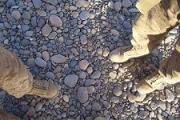
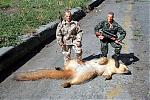


 These have the effect of cognitively teaching the troops the herd mentality.
These have the effect of cognitively teaching the troops the herd mentality.
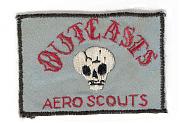
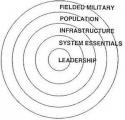
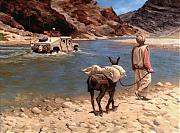


 , I get the feeling that, barring Maj. Gen Mattis' 2003 work towards this, there seems to be very little work on institutionally supporting this type of training for troops going on regular deployments. Is it possible that the LT you mentioned is from a unit where the emphasis is on "real military training, not that fuzzy ####"?
, I get the feeling that, barring Maj. Gen Mattis' 2003 work towards this, there seems to be very little work on institutionally supporting this type of training for troops going on regular deployments. Is it possible that the LT you mentioned is from a unit where the emphasis is on "real military training, not that fuzzy ####"?

Bookmarks